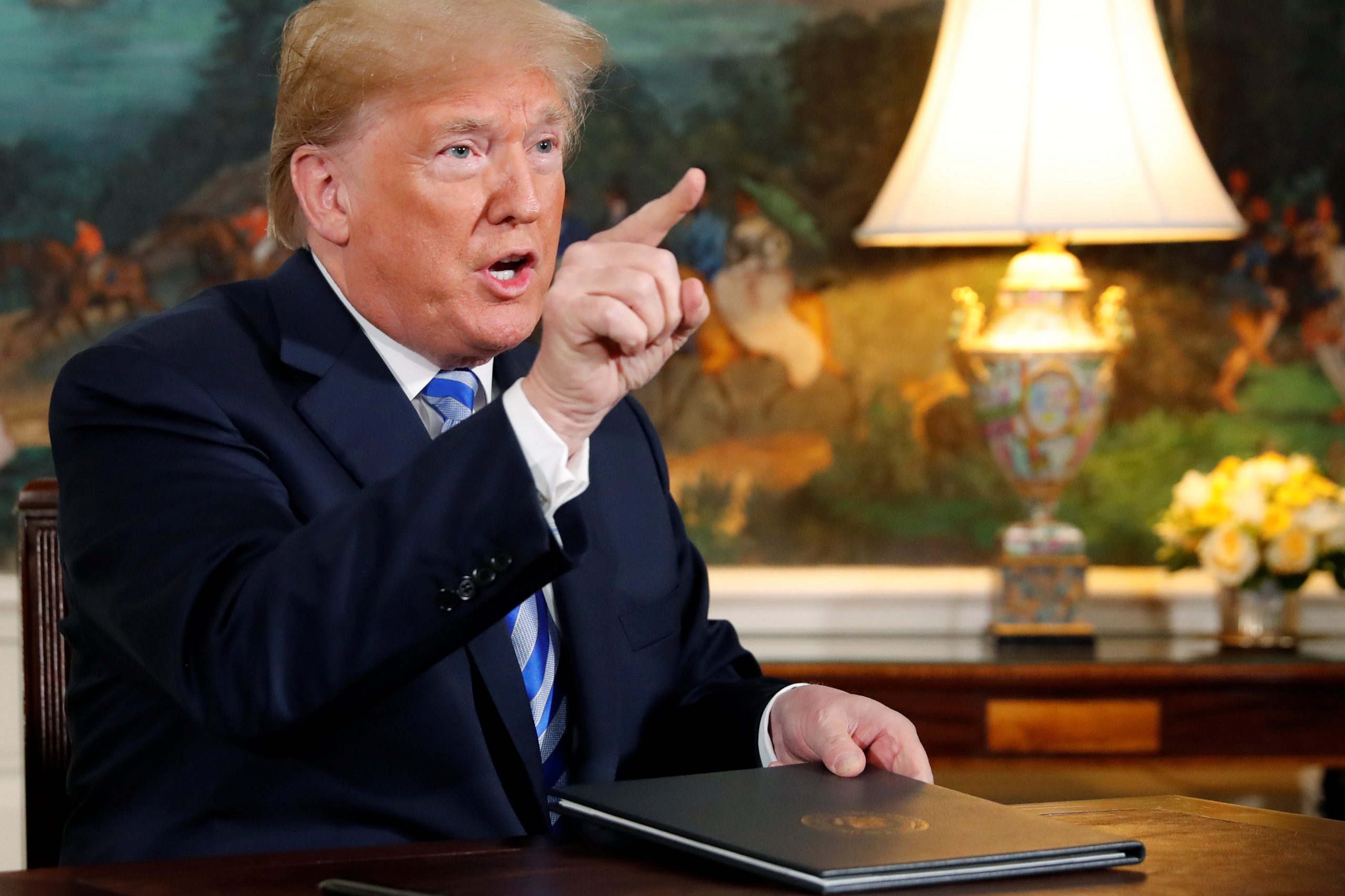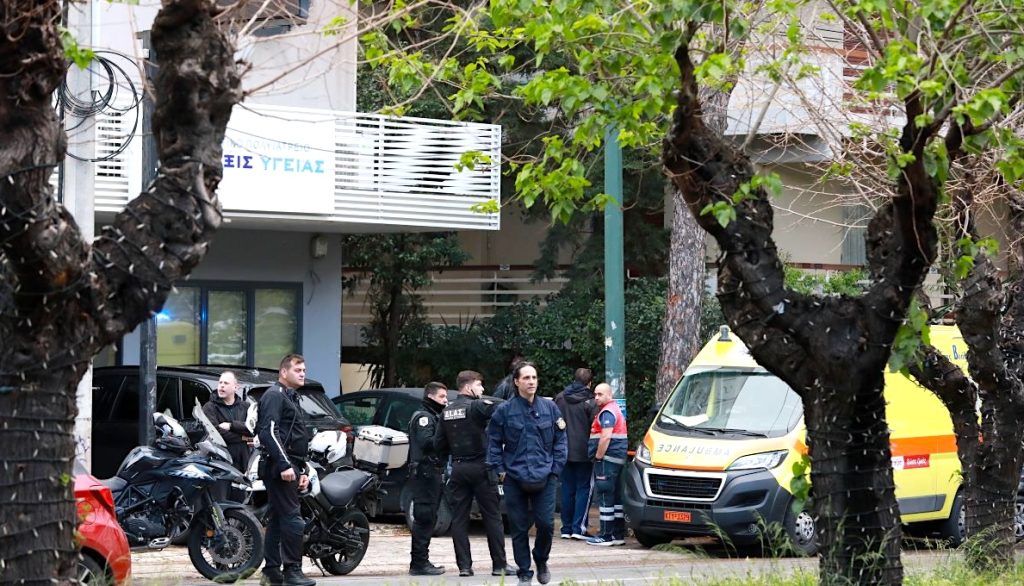President-elect Donald Trump plans to drastically increase sanctions on Iran and throttle its oil sales as part of an aggressive strategy to undercut Tehran’s support of violent Mideast proxies and its nuclear program, according to people briefed on his early plans.
Trump took a dim view of Iran during his first term, aborting a six-nation agreement with Tehran—known as the Joint Comprehensive Plan of Action—that sought to curb Iran’s nuclear-weapons work. He also imposed what was described as a “maximum pressure” strategy in hopes Iran would abandon ambitions for a nuclear weapon, stop funding and training what the U.S. considers terrorist groups and improve its human-rights record.
But when he takes office on Jan. 20, Trump’s approach to Iran is likely to be colored by the knowledge that its agents tried to assassinate him and former top national-security aides, former Trump officials said. The FBI thwarted an Iranian plot to assassinate Trump before he was re-elected president, the Justice Department said in a case unsealed Friday.
An Iranian operative told law enforcement that an official in Iran’s paramilitary Revolutionary Guard directed him in September to put together a plan to surveil and ultimately kill Trump, federal prosecutors in Manhattan said in the criminal complaint.
“People tend to take that stuff personally,” said Mick Mulroy , a top Pentagon official for the Mideast in Trump’s first term. “If he’s going to be hawkish on any particular country, designated major adversaries, it’s Iran.”
The people briefed on Trump’s plans and in touch with his top advisers said the new team would move rapidly to try to choke off Iran’s oil income, including going after foreign ports and traders who handle Iranian oil. That would re-create the strategy that the former president adopted in his first term, with mixed results.
“I think you are going to see the sanctions go back on, you are going to see much more, both diplomatically and financially, they are trying to isolate Iran,” a former White House official said. “I think the perception is that Iran is definitely in a position of weakness right now, and now is an opportunity to exploit that weakness.”
The officials familiar with Trump’s plan didn’t provide details of how precisely he would increase the pressure on Iran.
Israel in recent months has killed the leaders of Iranian proxies Hamas in Gaza and Hezbollah in Lebanon, and damaged much of the groups’ command structure. It launched strikes inside Iran, in retaliation for an Iranian missile attack on Israel, that severely damaged Tehran’s missile-production capabilities and air defenses.
Iran has vowed to respond to the Oct. 26 Israeli attack, but it is unclear whether Trump’s election victory this week will change Tehran’s calculus or timing.
Brian Hook , who oversaw Iran policy at the State Department in Trump’s first term and is now in charge of the Trump transition for the department, said Thursday that the president-elect had “no interest” in seeking to overthrow Iran’s rulers.
But Hook, in an interview with CNN, noted that Trump has pledged to “isolate Iran diplomatically and weaken them economically so they can’t fund all of the violence” perpetrated by Hamas, Hezbollah, the Houthis in Yemen and other proxies in Iraq and Syria.
Hook is widely expected to receive a top national security job in Trump’s second term. During the first term, he championed the maximum-pressure campaign to squeeze Iran. Advocates say it reduced the funds available to Tehran’s security services. But it failed to halt Iran’s operations via its proxies or its nuclear work.
Iran’s oil exports surged last year amid quiet negotiations to free Americans detained by the regime, leading Republicans to accuse the administration of not fully enforcing the current oil sanctions, which the White House has denied.
Trump had reimposed a full embargo on Iran’s crude exports in 2019, and its shipments collapsed to 250,000 barrels a day by early 2020—substantially less than their level two years earlier. But after Biden took office, they reached a six-year high in September this year.
Once back in the White House, Trump could face the same dilemma that Biden did in curbing oil sales by Iran and other adversaries such as Venezuela—the risk that oil prices could rise and spark inflation.
Robert McNally , a former U.S. energy official, said the Trump administration could impose U.S. bans on Chinese ports that receive Iranian oil and also sanctions targeting Iraqi officials that fund Iran-backed militias. Even expectations of an aggressive enforcement of the oil embargo would be enough to cut at least 500,000 barrels a day in mostly Chinese oil purchases, he said.
“It’s going to be maximum pressure 2.0,” said McNally, who now heads Washington, D.C.-based consulting firm Rapidan Energy Group.
Helima Croft , the chief commodities strategist at Canadian broker RBC Capital Markets, said Trump’s senior advisers have expressed strong support for an Israeli strike on Iran’s nuclear and energy facilities. Another person in touch with Trump’s team said the new president might be less inclined to oppose such a move by Israel.
Biden sought and received Israeli assurances before its Oct. 26 Iran strike that it wouldn’t hit nuclear sites or energy infrastructure, which the U.S. feared would raise oil prices and lead to a wider regional escalation.
Iranian President Masoud Pezeshkian said late Wednesday the result of the U.S. election didn’t matter to his country. “To us, it does not matter at all who has won the American election, because our country and system relies on its inner strength,” Pezeshkian was quoted as saying by state news agency IRNA.
Yet Iranian officials are divided over whether the Islamic Republic can resist added economic pressure. “The situation may become catastrophic for Iran’s oil industry,” said an Iranian oil official. He said China is already buying the country’s crude at a discount while Iran is suffering from natural-gas shortages—used for heating and industry—due to years of underinvestment.
But an Iranian diplomat said Tehran would offset the U.S. restrictions by deepening its trade partnerships through the Asia-focused Shanghai Cooperation Organisation and other alliances. It could also respond to the pressure by stepping up its nuclear program or threatening oil facilities in the Middle East, he said.
Despite the mutual hostility, some who worked for Trump don’t rule out an eventual U.S.-Iran diplomatic deal in his second term. Trump likes to make deals, Mulroy said, but only “if it’s his deal.”
Write to Warren P. Strobel at Warren.Strobel@wsj.com , Benoit Faucon at benoit.faucon@wsj.com and Lara Seligman at lara.seligman@wsj.com



